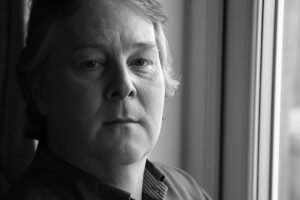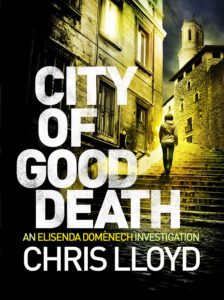Wales has an extraordinary breadth of landscapes and moods. From cities to hamlets, from rural idylls to the legacy of the mines. A beautiful country pockmarked by elements of its past that has learnt to make a virtue out of the ravages it’s experienced. It’s a landscape and a history that invite legend and myth to flourish, a haven for stories and storytellers.
So, if that’s the case, why do I set all my books outside Wales?
In many ways, Wales is a state of mind. A way of viewing the world – both our own and others – that is born of being a small nation. How I view the world, the places I’ve lived, the countries I’ve visited, is determined not just by where I happen to be, but where I happen to be from.
 When I was twenty, I went to Spain for six months as part of my degree. I ended up going back there after graduating and staying for twenty-four years, twenty of them in Catalonia. My connection with Catalonia – initially the small city of Girona and then the big guns of Barcelona – was immediate. I felt an affinity with its history of being the smaller partner to a more powerful neighbour, a culture that had been denied and pushed and pulled about at various times, a language that had been banned and belittled, and a culture that continued to thrive despite everything it had faced. And I viewed it all through the prism of my own background.
When I was twenty, I went to Spain for six months as part of my degree. I ended up going back there after graduating and staying for twenty-four years, twenty of them in Catalonia. My connection with Catalonia – initially the small city of Girona and then the big guns of Barcelona – was immediate. I felt an affinity with its history of being the smaller partner to a more powerful neighbour, a culture that had been denied and pushed and pulled about at various times, a language that had been banned and belittled, and a culture that continued to thrive despite everything it had faced. And I viewed it all through the prism of my own background.
And that is why, despite the richness of Wales as a setting, there was never any question in my mind that I should write about Catalonia. The problem was that I waited until I was living back in Wales before having the idea to write a book set there, a monument to my planning skills. Except it wasn’t a problem. Just as when I’d first gone to live in Catalonia, I found myself looking at Wales through new eyes and finally understanding how I felt about being Welsh, so writing about Girona from a distance actually helped me pin down my thoughts and feelings about my former adopted home. Oddly, I’ve found that to write about somewhere I love, I need a distance from it, which is probably one of my barriers to writing stories set in Wales – I live here.
 The first in my Catalan trilogy, City of Good Death, featuring Elisenda Domènech, a police officer in the newly-created Catalan police force, draws enormously from Catalan culture and the history and legends of Girona. A killer is using the Virgin of Good Death, a small statue dating from the Middle Ages, when it served to give convicted prisoners a final blessing before they were led out of the city to their execution, to announce the impending death of someone they feel is deserving of execution. Unfortunately, there are those in the city who agree and who applaud the killer’s every move. Until the victims become less deserving.
The first in my Catalan trilogy, City of Good Death, featuring Elisenda Domènech, a police officer in the newly-created Catalan police force, draws enormously from Catalan culture and the history and legends of Girona. A killer is using the Virgin of Good Death, a small statue dating from the Middle Ages, when it served to give convicted prisoners a final blessing before they were led out of the city to their execution, to announce the impending death of someone they feel is deserving of execution. Unfortunately, there are those in the city who agree and who applaud the killer’s every move. Until the victims become less deserving.
It was a similar passion that led to my new series, featuring Eddie Giral, a French police detective in Paris under the Nazi Occupation. I’d been fascinated for years by the notions of resistance and collaboration, and the blurred lines between them, but I wanted to write the story from a Parisian’s point of view, not the guns and guts heroism of the movies, but the day-to-day survival of ordinary people trying to get by. As near to the real history as possible. And I think that that is an essentially Welsh vision of life – an interest in society and community, an affinity with the underdog and the need to preserve a sense of self.
Follow Chris on Twitter: https://twitter.com/chrislloydbcn

